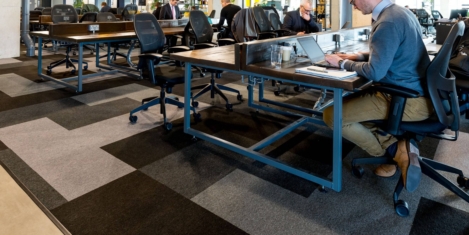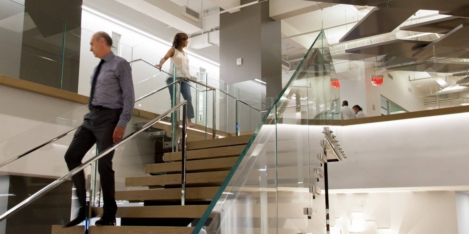July 11, 2018
Avenue HQ is named as Coworking Space of the Year by IPSE
 Liverpool’s Avenue HQ has been crowned ‘National Co-Working Space of the Year’ by The Association of Independent Professionals and the Self-Employed (IPSE). The award claims to ‘recognise and celebrate the important role coworking spaces play in creating a nurturing, inclusive and stimulating environment for the UK’s 4.8 million-strong self-employed workforce’. The coworking industry is booming globally as companies of all sizes recognise the importance of working environment on employee and business performance. Pioneered by start-ups, entrepreneurs and freelancers, a growing number of companies, large and small, are incorporating the concept and rapidly reaping the benefits.
Liverpool’s Avenue HQ has been crowned ‘National Co-Working Space of the Year’ by The Association of Independent Professionals and the Self-Employed (IPSE). The award claims to ‘recognise and celebrate the important role coworking spaces play in creating a nurturing, inclusive and stimulating environment for the UK’s 4.8 million-strong self-employed workforce’. The coworking industry is booming globally as companies of all sizes recognise the importance of working environment on employee and business performance. Pioneered by start-ups, entrepreneurs and freelancers, a growing number of companies, large and small, are incorporating the concept and rapidly reaping the benefits.













 More than 6 million UK adults are already self-employed or working as a contractor in the so-called gig economy, with a further 6 percent of currently full-time professionals looking to make the transition this year. New research of more than 2,000 UK adults commissioned by
More than 6 million UK adults are already self-employed or working as a contractor in the so-called gig economy, with a further 6 percent of currently full-time professionals looking to make the transition this year. New research of more than 2,000 UK adults commissioned by 










 One in four working people aged 55+ with a health condition are considering leaving work as a negative culture and bureaucratic procedures put many off speaking to their employers until a crisis point. This is according to a new report from Ageing Better, ‘Health warning for employers: supporting older workers with health conditions’, which claims that employers are not properly supporting older workers experiencing long-term physical and mental health conditions. Health is the most important factor affecting older workers’ decisions to stop working before reaching State Pension age. Ageing Better’s research finds that early access to support, small adjustments to the workplace and working patterns, and empathetic management are crucial to enabling people to manage their health at work and remain in employment. But the research also found that workers are often put off speaking to employers until the last moment due to poor workplace culture and overly bureaucratic procedures.
One in four working people aged 55+ with a health condition are considering leaving work as a negative culture and bureaucratic procedures put many off speaking to their employers until a crisis point. This is according to a new report from Ageing Better, ‘Health warning for employers: supporting older workers with health conditions’, which claims that employers are not properly supporting older workers experiencing long-term physical and mental health conditions. Health is the most important factor affecting older workers’ decisions to stop working before reaching State Pension age. Ageing Better’s research finds that early access to support, small adjustments to the workplace and working patterns, and empathetic management are crucial to enabling people to manage their health at work and remain in employment. But the research also found that workers are often put off speaking to employers until the last moment due to poor workplace culture and overly bureaucratic procedures.








June 17, 2018
Fathers Day offers a chance to ponder the disadvantages faced by many working dads
by Julia Waltham • Comment, Flexible working, Wellbeing
(more…)